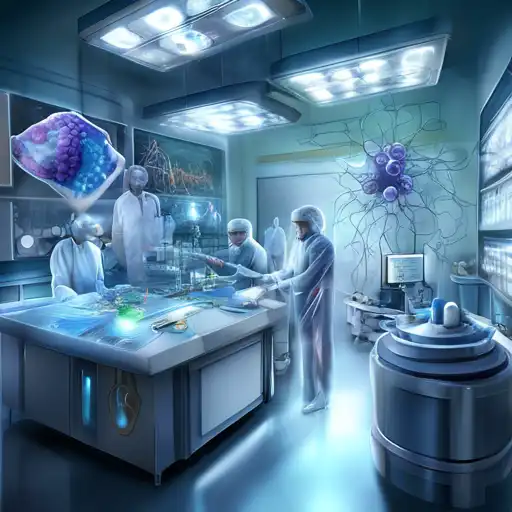Introduction to Nanotechnology in Medicine
Nanotechnology, the science of manipulating matter at the atomic and molecular scale, is set to revolutionize the medical field. With its ability to operate at the same scale as biological molecules, nanotechnology offers unprecedented opportunities for diagnosis, treatment, and prevention of diseases. This article explores the groundbreaking advancements and potential of nanotechnology in medicine.
The Promise of Nanotechnology in Healthcare
Nanotechnology in medicine, often referred to as nanomedicine, involves the use of nanoparticles to deliver drugs, heat, light, or other substances to specific cells in the body. This precision targeting minimizes damage to healthy cells and maximizes the therapeutic effects. From cancer treatment to regenerative medicine, the applications are vast and transformative.
Targeted Drug Delivery
One of the most promising applications of nanotechnology is in the field of targeted drug delivery. Nanoparticles can be engineered to seek out and bind to specific cells, such as cancer cells, delivering medication directly to the diseased area without affecting surrounding healthy tissue. This method reduces side effects and improves the efficacy of treatments.
Diagnostic Advancements
Nanotechnology also enhances diagnostic techniques. Nanosensors can detect diseases at their earliest stages, even before symptoms appear. This early detection is crucial for conditions like cancer, where early intervention can significantly improve outcomes.
Challenges and Ethical Considerations
Despite its potential, the integration of nanotechnology into medicine faces challenges. These include technical hurdles, such as manufacturing nanoparticles at scale, and ethical concerns regarding privacy and the long-term effects of nanoparticles on the human body and environment.
Regulatory Hurdles
The regulatory landscape for nanotechnology in medicine is still evolving. Ensuring the safety and efficacy of nanomedicine products requires robust testing and approval processes, which can slow down the introduction of new treatments to the market.
The Future of Nanotechnology in Medicine
The future of nanotechnology in medicine is bright, with ongoing research exploring new applications and improving existing technologies. As we overcome current challenges, nanomedicine could become a cornerstone of modern healthcare, offering personalized and precise treatments for a wide range of conditions.
Personalized Medicine
Nanotechnology paves the way for personalized medicine, where treatments are tailored to the individual's genetic makeup. This approach could revolutionize how we treat diseases, making therapies more effective and reducing the risk of adverse reactions.
Regenerative Medicine
Another exciting area is regenerative medicine, where nanotechnology is used to repair or replace damaged tissues and organs. This could lead to breakthroughs in treating conditions that are currently incurable, such as spinal cord injuries and heart disease.
In conclusion, nanotechnology in medicine represents a frontier of innovation with the potential to transform healthcare. While challenges remain, the progress so far is promising, and the future looks even brighter. As we continue to explore and harness the power of nanotechnology, we move closer to a new era of medical treatment that is more effective, less invasive, and highly personalized.
